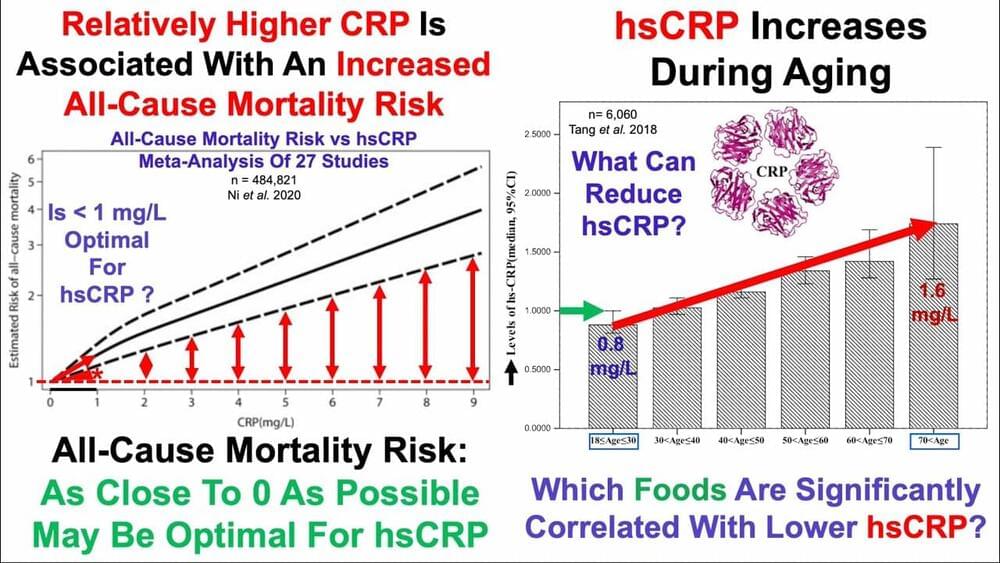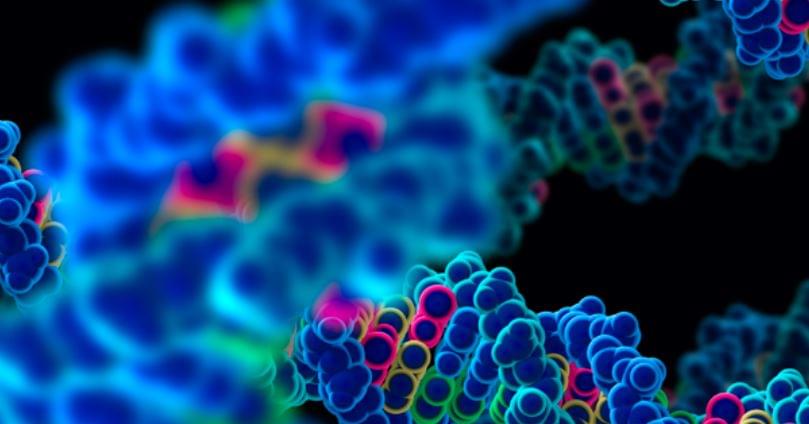Page 1928
Jun 8, 2023
Reanimated hearts work as well for transplants and could make more organs available for patients in need, study finds
Posted by Shubham Ghosh Roy in categories: biotech/medical, neuroscience
Researchers say they have been able to tap a new pool of organ donors to preserve and transplant their hearts: people whose hearts have stopped beating, resulting in so-called circulatory death.
Traditionally, the only people considered to be suitable organ donors were those who have been declared brain-dead but whose hearts and other organs have continued to function.
There’s another group that would be willing to donate if survival wasn’t possible: people who may have severe brain injuries but who are not brain-dead. In these cases, people are considered deceased when their hearts stop beating after withdrawal of life support, also called circulatory death.
To learn more about nose and sinus cancers, we spoke with head and neck surgeon Ehab Hanna, M.D.
What are the symptoms of nose and sinus cancers?
Early symptoms often mimic those of more common conditions, such as sinus infections and allergies. As a result, these cancers are often misdiagnosed.
Jun 7, 2023
Colorectal cancer screening: At what age should I get a colonoscopy?
Posted by Shubham Ghosh Roy in category: biotech/medical
Colorectal cancer screening can detect cancer early, giving you the greatest chance for successful treatment. While colonoscopy is the gold standard for colorectal cancer screening, you may be wondering when you should get your first test.
We spoke with gastroenterologist Mazen Alasadi, M.D., about the recommended age for colonoscopies.
Jun 7, 2023
X-ray Emissions from Black Hole Jets Vary Unexpectedly, Challenging Leading Model of Particle Acceleration
Posted by Shubham Ghosh Roy in categories: cosmology, particle physics
Researchers discovered only relatively recently that black hole jets emit X-rays, and how the jets accelerate particles to this high-energy state is still a mystery. Surprising new findings in Nature Astronomy appear to rule out one leading theory, opening the door to reimagining how particle acceleration works in the jets—and possibly also elsewhere in the universe.
One leading model of how jets generate X-rays expects the jets’ X-ray emissions to remain stable over long time scales (millions of years). However, the new paper found that the X-ray emissions of a statistically significant number of jets varied over just a few years.
“One of the reasons we’re excited about the variability is that there are two main models for how X-rays are produced in these jets, and they’re completely different,” explains lead author Eileen Meyer, an astronomer at University of Maryland, Baltimore County. “One model invokes very low-energy electrons and one has very high-energy electrons. And one of those models is completely incompatible with any kind of variability.”
Jun 7, 2023
Thinking about death: High neural activity is linked to shorter lifespans
Posted by Dan Breeden in category: neuroscience
Aint necessarily so.
After a comprehensive study, researchers came to a startling conclusion.
Jun 7, 2023
Oceans warmer last month than any May on record
Posted by Michael Taylor in categories: climatology, sustainability
Global oceans were warmer last month than any other May in records stretching back to the 19th century, the European Union’s climate monitoring unit reported Wednesday.
Sea temperatures at a depth of about 10 meters were a quarter of a degree Celsius higher than ice-free oceans in May averaged across 1991 to 2020, according to the Copernicus Climate Change Service (C3S).
Year-round, long-term trends have added 0.6C to the ocean’s surface waters in 40 years, said C3S deputy director Samantha Burgess, noting that April had also seen a new record for heat.
Jun 7, 2023
ChatGPT designs its first robot
Posted by Michael Taylor in categories: food, robotics/AI
Poems, essays and even books—is there anything the open AI platform ChatGPT can’t handle? These new AI developments have inspired researchers at TU Delft and the Swiss technical university EPFL to dig a little deeper: For instance, can ChatGPT also design a robot? And is this a good thing for the design process, or are there risks? The researchers published their findings in Nature Machine Intelligence.
What are the greatest future challenges for humanity? This was the first question that Cosimo Della Santina, assistant professor, and Ph.D. student Francesco Stella, both from TU Delft, and Josie Hughes from EPFL, asked ChatGPT.
“We wanted ChatGPT to design not just a robot, but one that is actually useful,” says Della Santina. In the end, they chose food supply as their challenge, and as they chatted with ChatGPT, they came up with the idea of creating a tomato-harvesting robot.
Jun 7, 2023
Google DeepMind’s game-playing AI just found another way to make code faster
Posted by Shubham Ghosh Roy in categories: information science, robotics/AI
“It’s an interesting new approach,” says Peter Sanders, who studies the design and implementation of efficient algorithms at the Karlsruhe Institute of Technology in Germany and who was not involved in the work. “Sorting is still one of the most widely used subroutines in computing,” he says.
DeepMind published its results in Nature today. But the techniques that AlphaDev discovered are already being used by millions of software developers. In January 2022, DeepMind submitted its new sorting algorithms to the organization that manages C++, one of the most popular programming languages in the world, and after two months of rigorous independent vetting, AlphaDev’s algorithms were added to the language. This was the first change to C++’s sorting algorithms in more than a decade and the first update ever to involve an algorithm discovered using AI.
Jun 7, 2023
HsCRP: What’s Optimal, Which Factors May Reduce It?
Posted by Mike Lustgarten in categories: biotech/medical, genetics

Join us on Patreon! https://www.patreon.com/MichaelLustgartenPhD
Discount Links:
NAD+ Quantification: https://www.jinfiniti.com/intracellular-nad-test/
Use Code: ConquerAging At Checkout.
Continue reading “HsCRP: What’s Optimal, Which Factors May Reduce It?” »

















